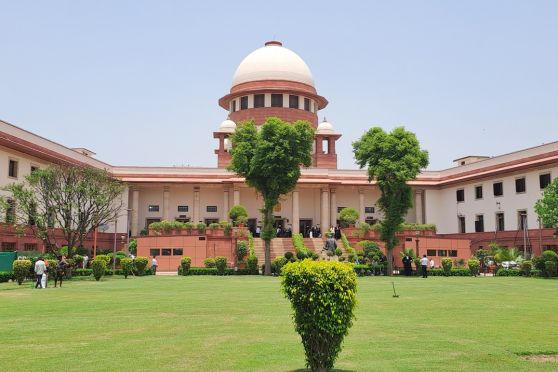In a relief to “untainted teachers,” the Supreme Court on Thursday directed the Bengal government to allow all such candidates to participate in the ongoing fresh selection process without requiring the newly introduced minimum 50 per cent marks in graduation and post-graduation.
The court also extended the application deadline by 10 days for these teachers and postponed the selection process accordingly. The application window had closed on July 21.
The minimum qualifying marks had previously been 45 per cent, which was enhanced to 50 per cent for the current recruitment process.
However, a bench of Justice Sanjay Kumar and Justice Satish Chandra Sharma dismissed petitions from a batch of aspirants who had not participated in the earlier selection process but sought age relaxation beyond the stipulated 40-year limit for the fresh recruitment that commenced in May this year.
The fresh selection process began in May following the Supreme Court’s April 3 decision upholding the Calcutta High Court’s judgment that quashed the appointment of approximately 25,000 teachers owing to what it said was a “vitiated” selection process.
During Thursday’s hearing, the bench criticised the Bengal government, stating that untainted teachers and others were forced to approach the Supreme Court due to large-scale irregularities in the quashed recruitment process.
“It is all because of your officials who wanted to favour their ‘blue-eyed’ candidates. It was a very shocking case of irregularities,” the court observed orally.
The Supreme Court issued the following key directions while posting the matter for further hearing on October 31, 2025:
- All selected and appointed untainted candidates, who were permitted to continue in service until December 31, 2025, shall be allowed to participate in the fresh selection process
- They will not be required to meet the newly introduced eligibility criteria of securing 50 per cent minimum marks in graduation and post-graduation under the West Bengal School Service Commission Rules, 2025
- Application deadline extended by 10 days specifically for these candidates
- The selection process has been postponed accordingly
Successful petition: The court passed the order while dealing with a special leave petition filed by Bibek Paria and several other untainted teachers challenging the new criteria.
Their petition was dismissed by Calcutta High Court before reaching the Supreme Court. The petition was filed through advocate-on-record Amit Pawan and advocate Aastha Sreshta.
The petitioners, represented by senior advocate Sreedhar Potharaju, argued that raising qualifying marks from 45 to 50 per cent for 2016 vacancies created an unfair retrospective eligibility criterion.
“Respondent authorities can neither be allowed to change the rules for eligibility under the garb of policy, to the detriment of 2016 candidates, nor alter the number of vacancies meant for the 1st SLST 2016, by clubbing with subsequent vacancies,” the petitioners contended.
They further argued that the revised criteria “operate retrospectively and unjustly disqualify meritorious untainted candidates who were otherwise eligible and successful under the 2016 scheme,” violating Articles 14 and 16 of the Constitution.
The petitioners also highlighted the practical disadvantage they face: “The syllabus of SSC for classes IX-Xand XI-XII, which the petitioners are teaching at present, and the syllabus of their selection tests are not one and the same. Owing to such different syllabi, preparation for the selection test along with teaching the classes and discharging other duties does not provide a level playing field.”
Dismissed petition: The court dismissed a separate petition filed by Malati Ghosh and several other aspirants who did not participate in the 2016 selection but sought age relaxation comparable to that given to untainted teachers.
According to their counsel, Subhro Prokas Mukherjee, these professionally qualified candidates became ineligible solely because they crossed the 40-year age limit as of January 1, 2025, despite acquiring the necessary qualifications after 2016, when no recruitment examination was held.
These petitioners argued they were “rendered over-aged due to long-standing administrative inaction and judicial delays” and were excluded despite being “otherwise fully qualified, untainted, and continuously eligible during the interregnum between 2016 and 2025”.
They challenged what they called the state’s “narrow construction” of the Supreme Court’s April 3 direction for “appropriate age relaxation”, arguing it created “an artificial and unconstitutional classification between similarly situated aspirants”.
However, the apex court found no merit in this plea and dismissed the petition.











